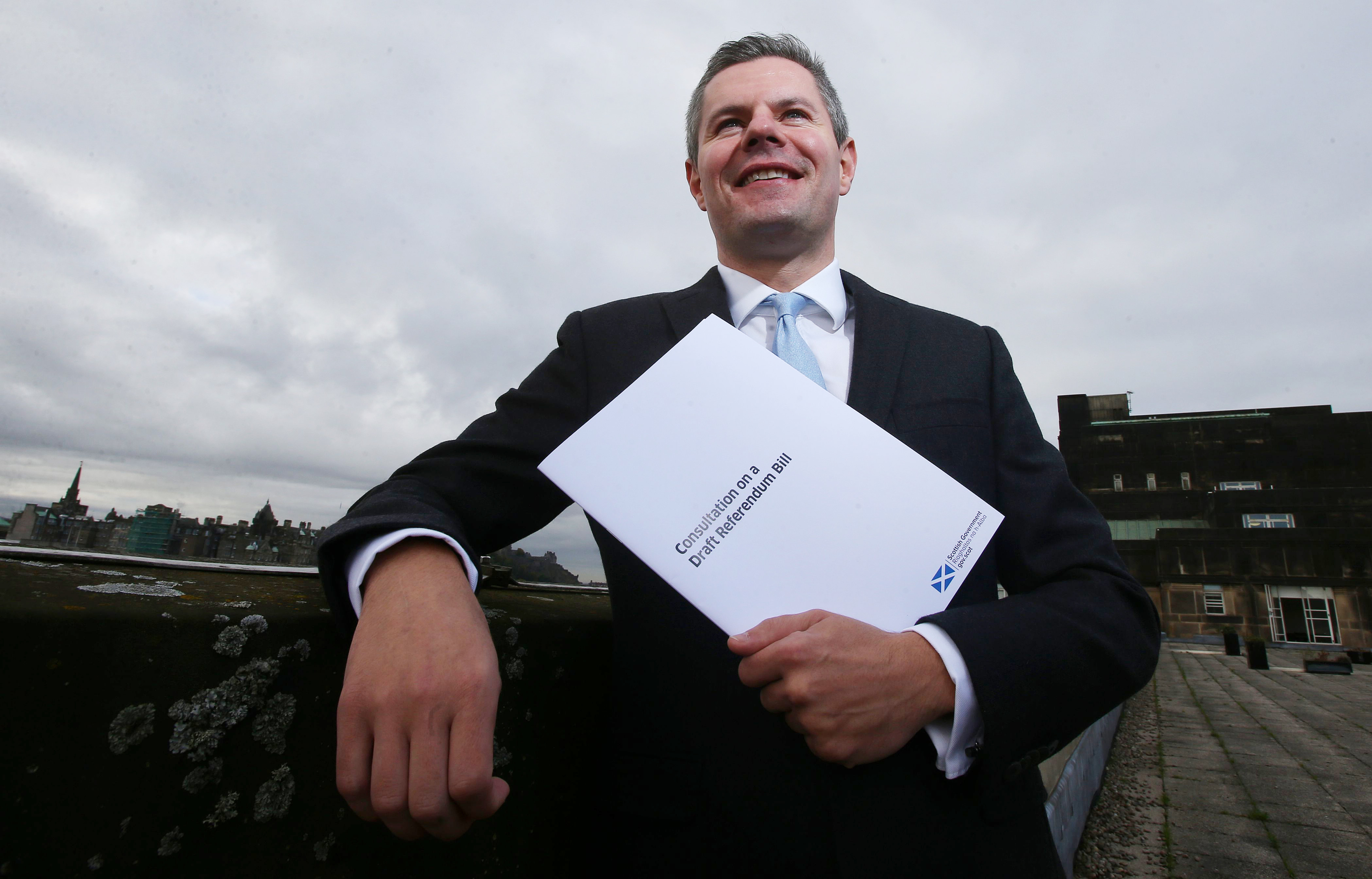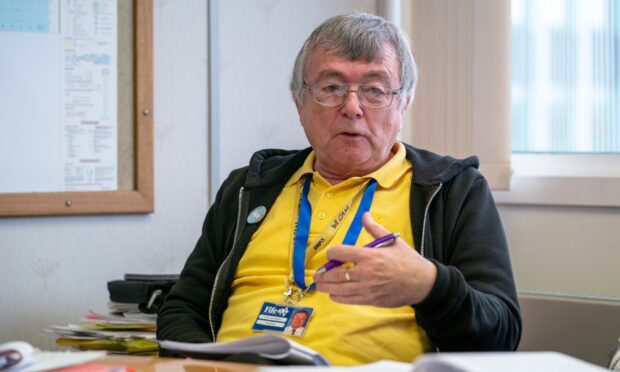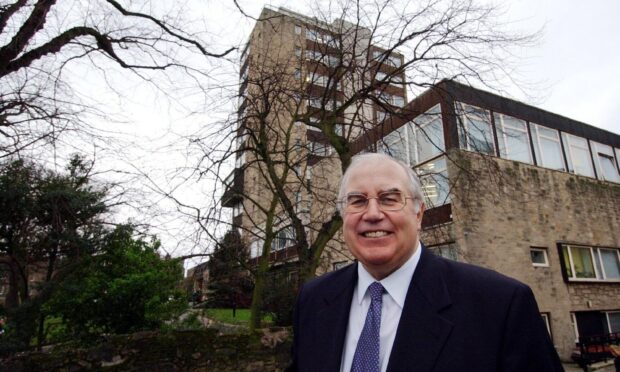Nicola Sturgeon may not be able to put her independence plans to MSPs without the UK Government’s permission, The Courier has learned.
John Curtice, the political scientist, said it was unlikely the draft bill unveiled by the First Minister yesterday could be tabled at Holyrood without a section 30 order granted by Downing Street.
Sources close to Ken Macintosh said the Presiding Officer was already taking legal advice on the issue, although that was denied by parliament officials.
One insider said: “The reason the government is getting away with this just now is that it was in the programme for government and it hasn’t been laid before parliament.”
The Edinburgh Agreement, which took more than a year of negotiations, was signed in 2012 before legislation was brought forward the following March ahead of the 2014 referendum.
The new draft legislation insists: “If the Scottish Government decided to formally introduce this Bill to Parliament, it would be expected that a section 30 order would be sought and agreed, as in 2014.”
But Downing Street has dismissed the need for a second independence referendum. A Number 10 spokesman said: “The Prime Minister and the government does not believe that there is a mandate for one.”
No 10 on #indyref2: "The Prime Minister and the (UK) Government does not believe that there is a mandate for one."
— Nick Eardley (@nickeardleybbc) October 20, 2016
The SNP’s manifesto for the 2016 Holyrood election said the Scottish Parliament “should have the right to hold another referendum…if there is a significant and material change in the circumstances that prevailed in 2014, such as Scotland being taken out of the EU against our will.”
North of the border, 62% backed remaining in Europe, while 52% of the UK as a whole vote to leave.
Scottish Constitution Secretary Derek MacKay said it was “inconceivable” the Conservative Government would not grant a section 30 order.
He added: “They need to respect Scotland, and the Prime Minister said she would do that.”
Sources close to the First Minister, who insisted the bill will “protect Scotland’s interests”, pointed out Downing Street did not explicitly rule out an agreement, adding there was no desire to “go full steam ahead” without a deal.
Here's what the manifesto @theSNP was elected on in May said about an #indyref. #mandate pic.twitter.com/HoKi8yPfkN
— Nicola Sturgeon (@NicolaSturgeon) October 20, 2016
Professor Curtice said: “To be continued in the Scottish Parliament there would need a section 30 order…the UK Government hasn’t said no but it certainly isn’t very keen on the idea.”
A Scottish Parliament spokesman said: “The Presiding Officer has a statutory function under the Scotland Act 1998 where he must issue a statement containing his view on whether or not a bill would be within the legislative competence of the Scottish Parliament.
“That function is exercised only at the point a bill is presented to him for introduction.”
The minority SNP Government could get legislation through the Scottish Parliament, if it makes it there, with the support of the Scottish Greens, despite all other parties opposing it.
Greens co-convener Patrick Harvie said it would be “foolish for the UK Government to stand in Scotland’s way”.
Scottish Conservative leader Ruth Davidson claimed the bill “shows that separation is (Ms Sturgeon’s) overriding concern” while Scottish Labour leader Kezia Dugdale branded it “irresponsible economic vandalism”.
Scottish Liberal Democrat leader Willie Rennie accused the SNP of “dragging Scotland back to division”.
Meanwhile, Ms Sturgeon was accused of “playing games” by proposing a question in a Yes or No format that was dismissed ahead of the EU referendum for risking a “perception of bias”.
Alastair Cameron, director of Scotland in Union, added: “If she has the confidence of her argument, Nicola Sturgeon will put a fair question to the electorate.”










